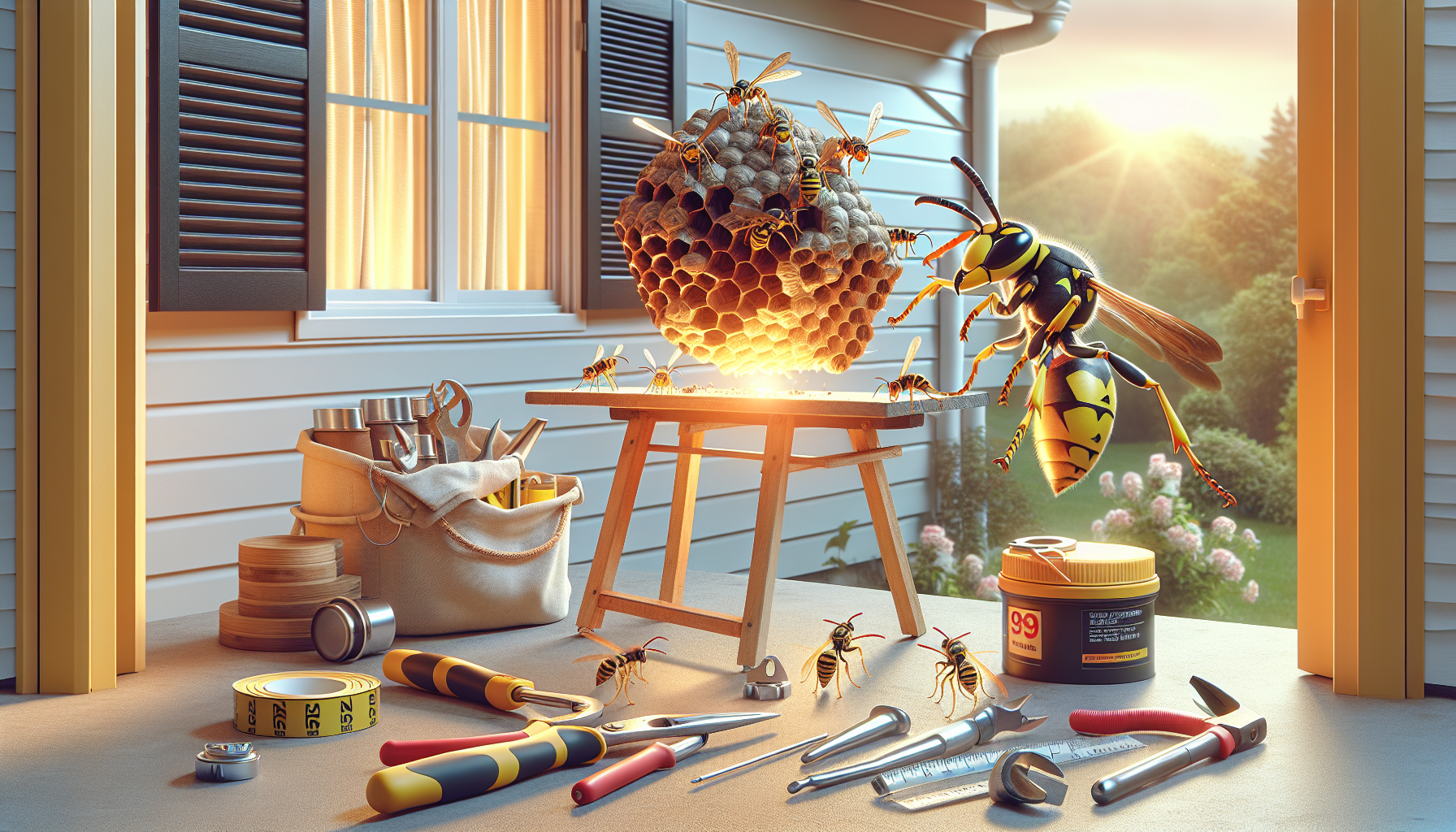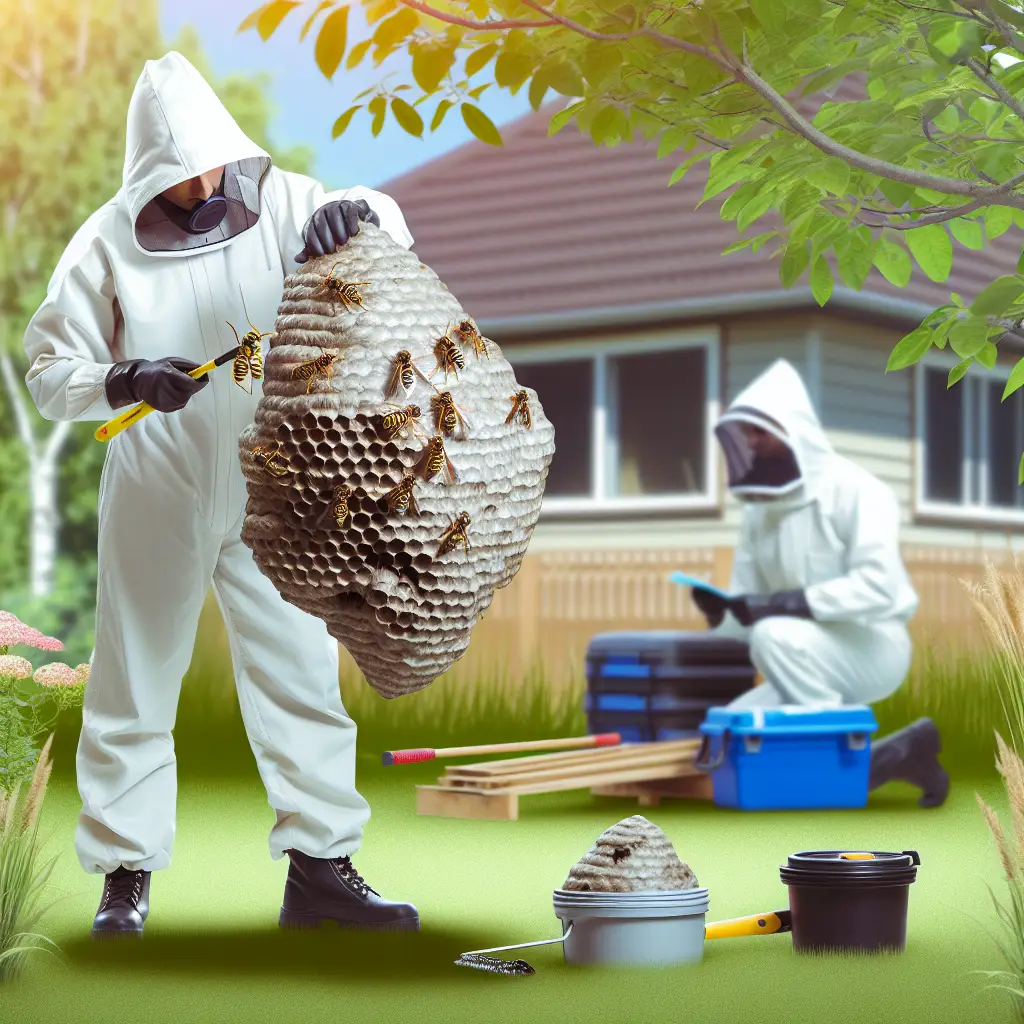Why Professional Wasp and Hornet Nest Removal Matters
If you’ve ever spotted a wasp or hornet nest hanging from your roof, clinging to a fence, or tucked away in a shed, you know how nerve-wracking it can be. We don’t blame anyone for panicking at the sight of swarming insects buzzing around their home or garden. Those stings can hurt, and for people who are allergic, they can be dangerous. That’s why we treat wasp and hornet nest removal like serious business.
At Wasps-R-Us, we focus on safe, fast, and effective nest removal so you don’t put yourself or your family at risk. With more people spending time outdoors during warmer months, making sure your space is free from these flying stingers is more essential now than ever. Whether you’re dealing with pesky wasps invading your picnic or hornets hovering near a loft window, our team at Wasp Nest Removal UK is ready to help.
Spotting the Difference: Wasps vs. Hornets
Although wasps and hornets are closely related, they’re not the same. Knowing which one is causing trouble can help when deciding what to do next.
Wasps: Slim bodies with bright yellow and black stripes. Wasps can be aggressive, especially late in the summer when their nests get full and food is scarce. You’ll often see them buzzing around your drinks or bins looking for sugar.
Hornets: A bit larger and darker than wasps. They tend to be less interested in your food, but hornets are more aggressive if you get too close to their nests. Their stings pack a mighty punch, so it’s best to steer clear.
Both wasp and hornet nests grow rapidly from spring into summer. They start small but can hold thousands of insects by late summer. That’s when things get risky. Don’t worry, though, that’s where we come in.
Why You Shouldn’t Remove a Nest Yourself
We get it, grabbing a broom handle or a hose and going after a nest might sound like a brave move. But removing a wasp or hornet nest without protective gear and training is downright dangerous.
One reason why DIY nest removal goes wrong is that many people underestimate how protective these insects are. If you disturb their home, they’ll fight back in swarms. Those stings aren’t just painful; they can also be life-threatening for people with allergies.
We always see cases where someone’s knocked down a nest, only to get chased around the garden or stung multiple times. Avoid that nightmare! Instead, choose a safer way with professional hornet nest treatment handled by experienced experts. We at Wasps-R-Us wear the proper safety gear and use treatments that target the insects without putting your property or well-being at risk.
How We Handle Wasp and Hornet Nest Removal
When we arrive at your property, our first step is always to inspect. We need to locate the nest and figure out whether we’re dealing with wasps or hornets. Sometimes nests are tucked away in tricky spots like lofts, garages, or behind brick walls.
Once we know what we’re dealing with, our team uses industry-approved spray treatments to take down the nest. These treatments are designed to kill the insects from inside the nest, meaning less disturbance and no chases!
Most of the time, our treatments work in just one visit. In rare cases, if the nest isn’t fully destroyed, we may come back to make sure the problem is sorted. After we’ve treated the nest and the insects are gone, we can remove it safely if needed.
The great news? Most jobs are done the same day you call. That means you won’t be dodging wasps for long.

Where Do Wasps and Hornets Build Their Nests?
It might surprise you how sneaky wasps and hornets can be when picking a spot for their nest. They’re good at finding hidden corners where you least expect them.
Here’s where you’re most likely to find them:
- Loft spaces or attics: Warm and quiet, these spaces are prime real estate for nests.
- Sheds and garages: Especially near wooden roof beams or corners.
- Under eaves or roof tiles: High spots make it safer for them.
- Underground or in bushes: Some species prefer these hidden places.
We always recommend checking your property frequently in spring and early summer for small starter nests. If you spot one early, we can remove it quickly before it grows.
How to Keep Nests From Coming Back
Once we’ve helped you eliminate a wasp or hornet nest, you’ll want to make sure it doesn’t happen again. While there’s no perfect solution to prevent new nests every time, there are some smart tricks that can help:
- Keep bins sealed: Wasps love food scraps and sugar.
- Avoid leaving sweet drinks unattended outdoors: These attract stingers quickly.
- Seal cracks and gaps where insects might enter: Pay close attention to loft edges and roof tiles.
- Use dummy nests: Wasps are territorial and might avoid a spot if they think it’s already taken.
If you’re unsure where they might build next, ask our team for advice during the service. At Wasp Nest Removal UK, we offer tips tailored to your property.
Professional Hornet Nest Treatment Done Right
Some nests, especially hornet nests, need stronger treatment due to their size and the aggression of the insects. Our professional hornet nest treatment takes care of the problem without endangering anyone.
We use safe methods that target the hornets quickly, reducing their numbers and activity before manually removing the nest. Our goal is always to leave your space quiet and safe once more.
At Wasps-R-Us, we take pride in fast responses and no-nonsense solutions. If you’ve got hornets, let us do the hard work and skip the risk.
FAQs
Do I need to leave the house during treatment?
No, usually this isn’t necessary. Our treatments are focused on the nest and don’t affect indoor air or food.
How long does the treatment take?
Most treatments take 30 minutes or less. Some nests may take longer depending on their size and location.
How soon will the wasps/hornets be gone?
Most insects are wiped out within a few hours of the treatment. Activity should stop completely by the next day.
Can you remove a nest at night?
Yes, evening times can be safer for treatment since most wasps and hornets are inside the nest at night.
What if the nest comes back?
If the same nest becomes active again, we offer follow-up treatments. Always get in touch if you’re unsure.
You can read through more advice and common questions at Wasp Nest Removal UK.
Trust the Experts at Wasps-R-Us
Hornets and wasps aren’t just annoying, they pose a real risk to your safety. Whether you spot a nest developing in spring or you’re dealing with a full-blown infestation, don’t wait until someone gets stung.
At Wasps-R-Us, we specialise in hornet nest treatment and complete wasp removals across the UK. We’ve helped thousands of homeowners and businesses get back to enjoying their spaces without the buzzing threat overhead, and we’re ready to help you too.
Reach out to us via Wasp Nest Removal UK and book your visit today. Let’s make your property safe and sting-free again, starting now.



 Blog
Blog